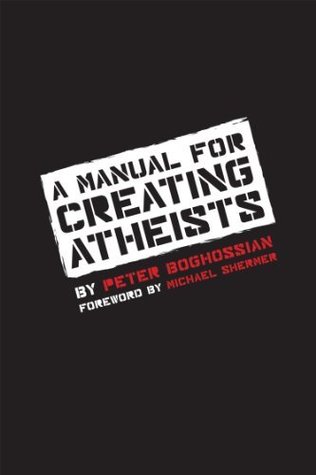More on this book
Community
Kindle Notes & Highlights
Examples of the word “faith” in nonreligious contexts include: “I have faith you’ll pass the test tomorrow,” “You have faith in your spouse,” “She has faith that the airplane will not crash.” When the word “faith” is used in these ways it gives cover for “faith” to be used as a synonym for “hope,” “trust,” etc., in religious contexts. This is highly problematic, because when the faithful are pressed on the definition of faith (when they’re shown they can’t and don’t really know Jesus performed these miracles), they usually retreat to the words “hope,” “trust,” and “confidence,” abandoning
...more
If you haven’t read their books already, I’d start with the Four Horsemen and Michael Shermer (I suggest beginning with Harris and Shermer and ending with Dawkins and Dennett). From there, read select Platonic dialogues (the Republic, the Apology, the Euthyphro, the Gorgias) and move to key works by Nietzsche (The Dawn, Thus Spoke Zarathustra: A Book for All and for None, Beyond Good and Evil, On The Genealogy of Morality, Twilight of the Idols, and The Antichrist).5
While not synonymous with good thinking, CT is a pervasive and self-rectifying human phenomenon. The ideal critical thinker is habitually inquisitive, well-informed, trustful of reason, openminded, flexible, fair minded in evaluation, honest in facing personal biases, prudent in making judgments, willing to reconsider, clear about issues, orderly in complex matters, diligent in seeking relevant information, reasonable in the selection of criteria, focused in inquiry, and persistent in seeking results which are as precise as the subject and the circumstances of inquiry permit.
Instructor: Peter Boghossian Course Description: In this 8-hour critical thinking class we will think through some difficult questions together, articulate our responses to those questions, and assess our reasoning. Objectives: 1) Learn how to identify consequences 2) Learn how to reason through a problem (problem-solving) 3) Learn how to assess our thinking 4) Learn how to assess our current relationships 5) Learn how to articulate our ideas 6) Develop higher stages of moral reasoning 7) Develop verbal self-control 8) Understand how our identities are formed 9) Understand the roles that
...more
This highlight has been truncated due to consecutive passage length restrictions.
Atheist A person who does not think there’s sufficient evidence to warrant belief in God(s), but who would believe if shown sufficient evidence. A person who doesn’t pretend to know things he doesn’t know with regard to the creator of the universe.
Four Horsemen Richard Dawkins, Daniel Dennett, Sam Harris, and Christopher Hitchens. The phrase “Four Horsemen” comes from the New Testament’s Book of Revelation.


